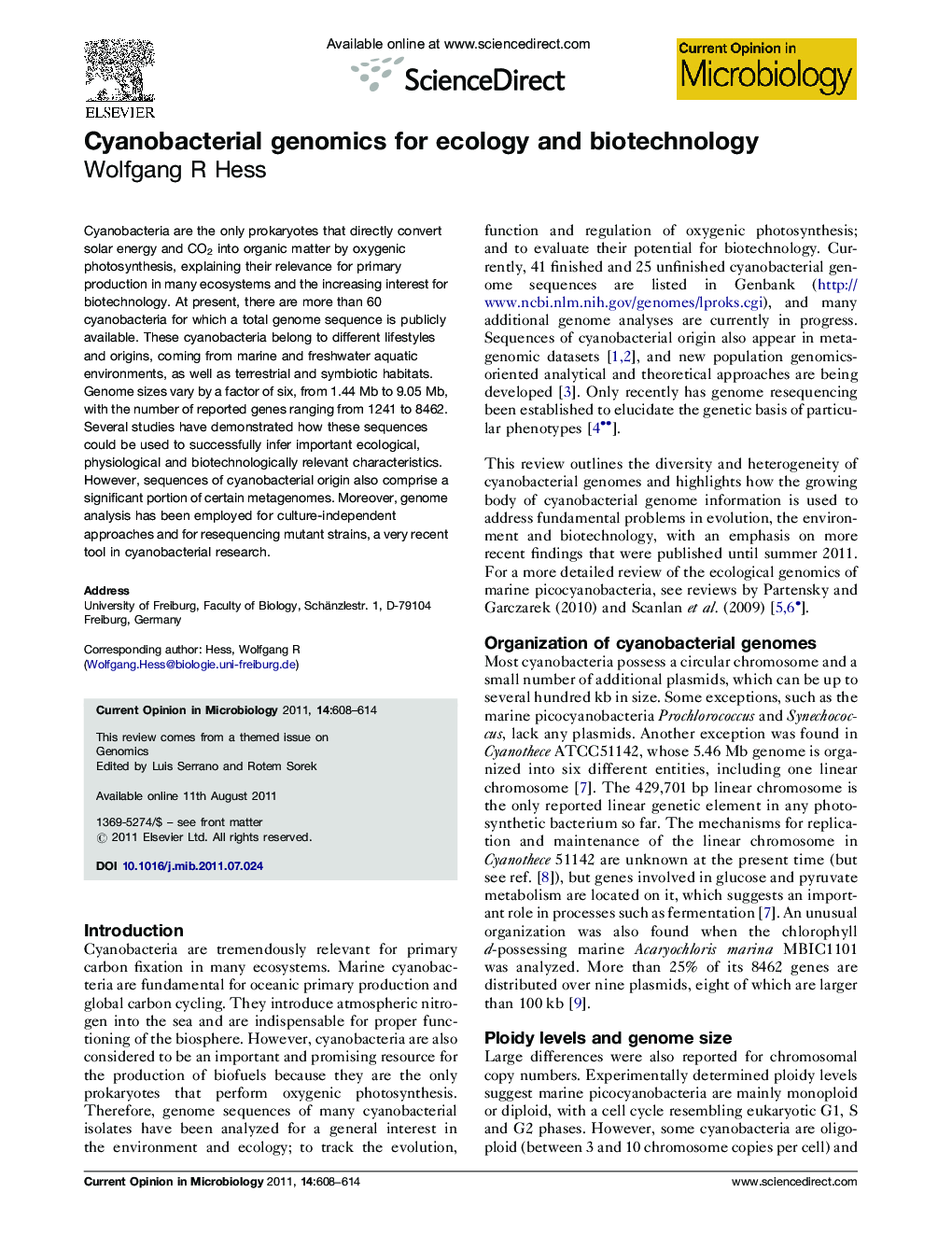| Article ID | Journal | Published Year | Pages | File Type |
|---|---|---|---|---|
| 3399218 | Current Opinion in Microbiology | 2011 | 7 Pages |
Cyanobacteria are the only prokaryotes that directly convert solar energy and CO2 into organic matter by oxygenic photosynthesis, explaining their relevance for primary production in many ecosystems and the increasing interest for biotechnology. At present, there are more than 60 cyanobacteria for which a total genome sequence is publicly available. These cyanobacteria belong to different lifestyles and origins, coming from marine and freshwater aquatic environments, as well as terrestrial and symbiotic habitats. Genome sizes vary by a factor of six, from 1.44 Mb to 9.05 Mb, with the number of reported genes ranging from 1241 to 8462. Several studies have demonstrated how these sequences could be used to successfully infer important ecological, physiological and biotechnologically relevant characteristics. However, sequences of cyanobacterial origin also comprise a significant portion of certain metagenomes. Moreover, genome analysis has been employed for culture-independent approaches and for resequencing mutant strains, a very recent tool in cyanobacterial research.
► Cyanobacteria are of major interest for biotechnology and as primary producers. ► Currently, genome sequences from 66 cyanobacteria are publicly available. ► These belong to cyanobacteria of very different lifestyles and origin. ► Genome sizes vary by a factor of six, from 1.44 to 9.05 Mbp. ► Culture-independent genome analysis and mutant resequencing is rapidly advancing.
